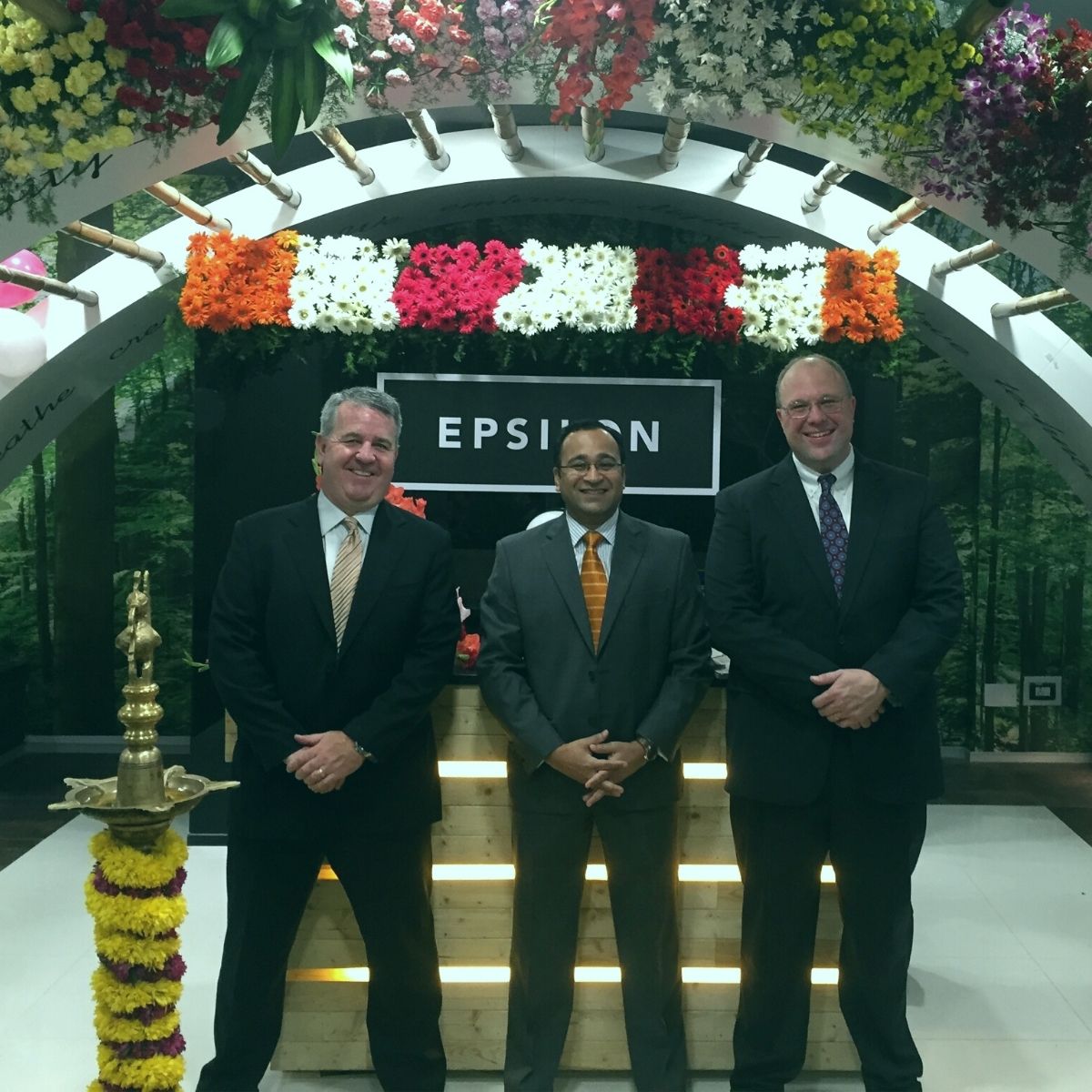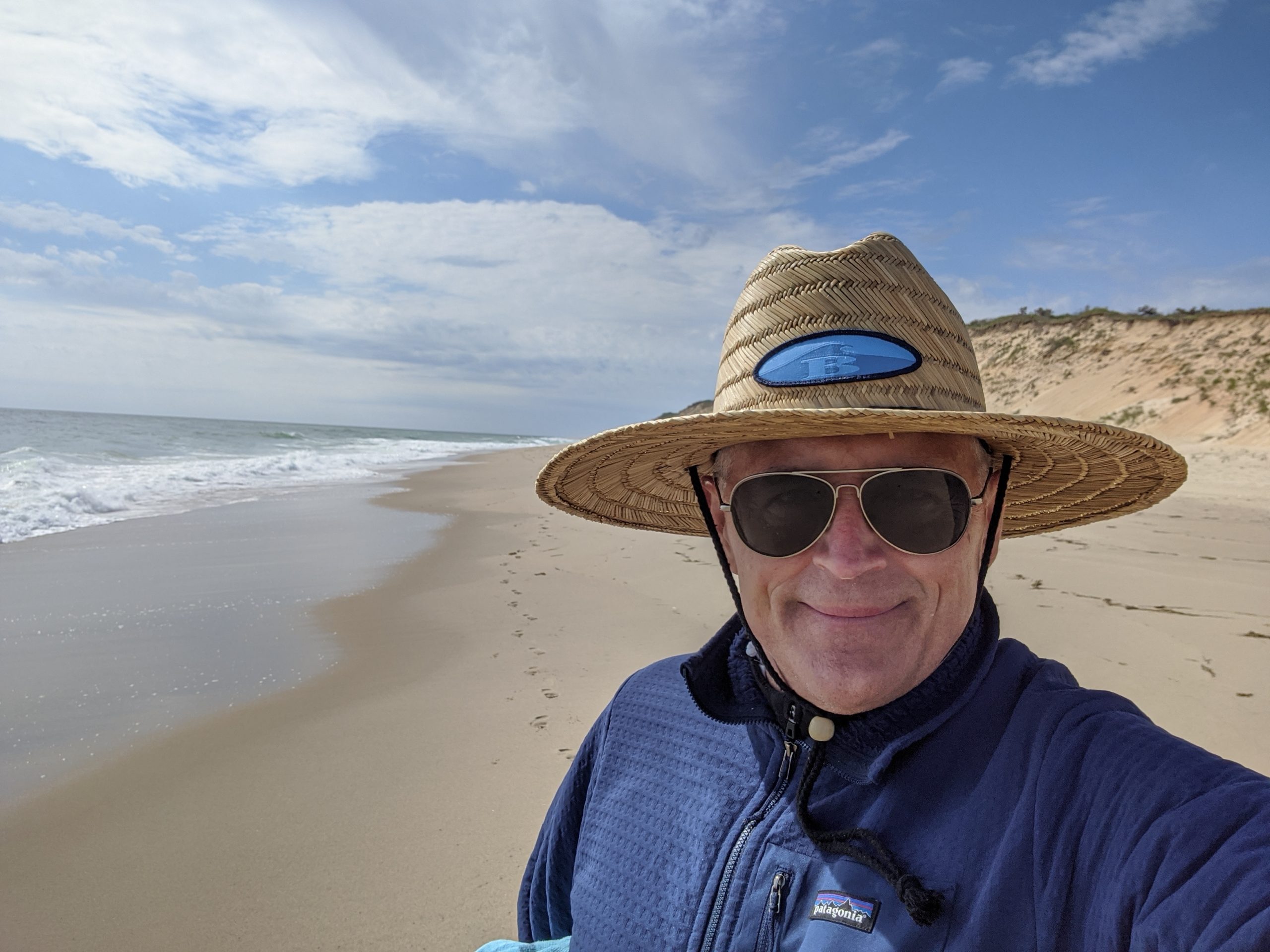Q&A with Charles Pfeffer
Charles Pfeffer shares what he likes best about his role, the biggest mistake he’s made, and what inspires him.
What are your areas of expertise?
Executive Coaching (people tell me I’m one of the best listeners they have ever met), Senior Team Development, and Strategy.
What led you to Brimstone? Describe your journey.
I was introduced to former Brimstone partner, Bob Marcus by a mutual friend. We hit it off over sushi and he set up dinner with Bob and Wendy Weiler on my next trip to Maine. I guess I didn’t spill anything on myself during that dinner and was asked to work on a client project at the New York Times a few months later. Since then, it’s been a series of fascinating experiences with great clients and great colleagues.
What makes Brimstone unique?
The combination of deep organizational experience, wisdom, and humility born of this experience, balanced with a certain edgy pragmatism I attribute to the firm’s Outward Bound roots makes belonging to the Brimstone community a continuous learning experience. There is a deep value within the firm that calls its members to relate to our work with a spirit of adventure and exploration and to have each other’s backs.
What do you like most about your role?
I have over 30 years of career experience as an organizational development consultant. My Brimstone colleagues value this experience and grant me the freedom to bring what I have learned into the methods we use to help clients. The joy of this work is in seeing an executive team overcome its obstacles and find its way through their challenges in a way that builds their trust and confidence in each other and positioned them to accomplish even more.
Which of our values do you most relate to? Why?
Bring out the Best: I think that there is a common human tendency to operate from a mostly unexamined assumption that “something’s wrong.” The value, Bring out the Best is a stand we take that there is more working than not working in the people and organizations we interact with. One thing that we can do is to maintain that stand when our clients don’t yet see it. We can listen in a way that the strengths, the core capabilities, and the superordinate motives of our clients get amplified over the noise of the current circumstances and the problems of the day. It’s hard to do that from inside a system that has gotten down on itself. It’s a subtle and vital element that we can bring.
What are the three adjectives that best describe you?
Committed. Curious. Open-hearted.
What is the greatest piece of advice you’ve been given?
The man who hired me into my first consulting job said to me during a tough time in an early client engagement, “Remember, we are not here to make something happen. We are here to make something possible.” That one piece of wisdom guides me over and over to respect the client’s right to solve their own problems, with me as a conversation partner, a thought partner, someone who has been around and seen a lot, but not someone with the answer. It’s advice that challenges me to respect the difference between owning the problem and being a committed listener, supporter, and advisor.
What is the biggest mistake you’ve made? What did you learn from the experience?
My biggest mistake in life was not following the value, Bring out the Best with my own son at a critical point in his life. Instead of listening for the strengths, capabilities and superordinate motivations inherent in him, I lost patience and revealed my lack of confidence in him. This hurt him badly and it took many years to earn back his trust. We are now in much better place in our relationship and I know he knows that I love and respect him for the man he has become. What I learned is that leadership is always on and that a moment of weakness or selfishness can bring a heavy cost that will take years to pay off.
“Each second we live is a new and unique moment of the universe, a moment that will never be again. And what do we teach our children? We teach them that two and two make four, and that Paris is the capital of France. When will we also teach them what they are? We should say to each of them: Do you know what you are? You are a marvel. You are unique. In all the years that have passed, there has never been another child like you. Your legs, your arms, your clever fingers, the way you move. You may become a Shakespeare, a Michaelangelo, a Beethoven. You have the capacity for anything. Yes, you are a marvel. And when you grow up, can you then harm another who is, like you, a marvel? You must work, we must all work, to make the world worthy of its children.” ― Pablo Casals
How do you recharge?
My church is the outdoors. A hike in the woods, cycling a country road, sailing a rocky coastline, or swimming beneath a waterfall near our home in Costa Rica — all of these restore my sense of gratitude for being alive, healthy, and privileged with the relationships and resources I have been given.
What inspires you?
A strong poetic vision inspires me — by which I mean that there are some people, whom we call poets, who are able to say truths we did not know we knew until we hear them spoken. The best of these poets reveal to us the dignity of being human amidst the challenges of living and the absurdity of doing so in the knowledge that we all will die.
Who inspires you?
I had the opportunity to be in the audience when Nelson Mandela received the Africa Prize for Leadership from the Hunger Project. To be in the presence of this giant of history, a man who overcame more than 27 years of incarceration to emerge whole, in complete command of his power to love and to lead, and to offer this power to his nation and to the world is something I will never forget. Overcoming inspires me.
Who else inspires you?
R. Buckminster “Bucky” Fuller. Bucky spent his summers on Bear Island in Penobscot Bay and grew up to be one of the 20th century’s most extraordinary thinkers, inventors, and visionaries. He is most famous for his geodesic dome which we now see at any radar installation, atop many large oil tanks, and of course at Disney’s EPCOT Center. But what inspired me about Bucky was his work as an “anticipatory design scientist” to find ways to do more with less so that the World could be made to work for everyone. Without Bucky, there might not be any United Nations Sustainable Development Goals. We would likely not be living in a time when serious people in business, government, and civil society speak of and plan for an end to poverty, hunger, pollution, and the indignities that these cause millions of our fellow citizens. Bucky is my intellectual action hero.
What is your greatest accomplishment?
After six decades of being me, I have a wife and four children who love me and many friends who assure me they will come to my funeral.







